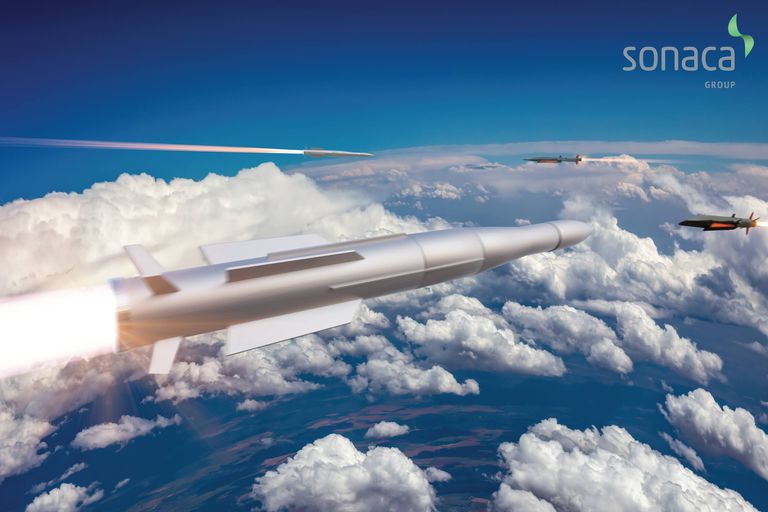Walloon aerospace company Sonaca, along with twelve other European companies, has been selected to participate in the development of Europe’s first defence system against hypersonic missiles.
Europe’s need for this form of defence has become increasingly urgent as a result of the war in Ukraine. In March, the Russian army proudly announced that it had struck Ukraine with hypersonic missiles, namely the new “Kinzhal” (dagger) missile, which can reach Mach 5 (five times the speed of sound).
In 2018, upon the unveiling of the new missile, Russian President Vladimir Putin proudly stated that the rockets could reach any part of the world and could easily avoid current U.S made anti-missile shields, such as Israel’s Iron Dome system.
Intercepting this new generation of an ultra-fast missile is no easy feat. The missiles are hard to detect, precise, and require a new generation of technology to intercept. Little is known about the hypersonic missile programme of major countries, but both China and Russia are rushing to develop the technology.
In Europe, work has begun to construct the next generation of missile defence systems.
In August, the European Commission's European Defence Fund Program Committee approved €100 million for the European Hypersonic Defence Interceptor (EU HYDEF) project, which includes the participation of companies from Spain, Germany, Poland, Czechia, Norway, Sweden, and Belgium.
According to official documentation, the project will “develop a European interceptor targeting the 2035+ threats, weapon and sensor systems.” The project aims to create the concept for a “cost-effective” and “endo-atmospheric” interceptor which will be capable of operating at different air levels, as well as being highly manoeuvrable and fast.
Gosselies-based Sonaca has been selected to participate in the development of this European defence system, specifically for developing the structure of the different stages of the interceptor, including coordinating thermal, mechanical, and aerodynamic studies.
Related News
- Belgian and global defence industry booms from war in Ukraine
- Belgian international arms broker arrested
According to newspaper La Libre Belgique, a team of seven Belgian engineers will spend three years on this project, collaborating with Belgian universities, research centres, and businesses.
Sonaca will have several major hurdles to overcome in the project. The project will require materials capable of withstanding extreme heat, pressure, and friction at hypersonic speeds. Sonaca must also choose materials light enough to afford the interceptor manoeuvrability in intercepting the rockets.
The aerospace company mostly specialises in wing design and creates parts for major plane manufacturers, companies, and the defence sector. The company will seek to use its experience in designing advanced control surfaces in developing the new interceptor. The first phase of the project will have a budget of €110 million.
In a visit to Sonaca’s Gosselies factory on 26 September, Belgian Minister of Defence, Ludivine Dedonder, described said that “Belgian defence companies are among the best”, which she says is “reassuring in the current geopolitical system.”

